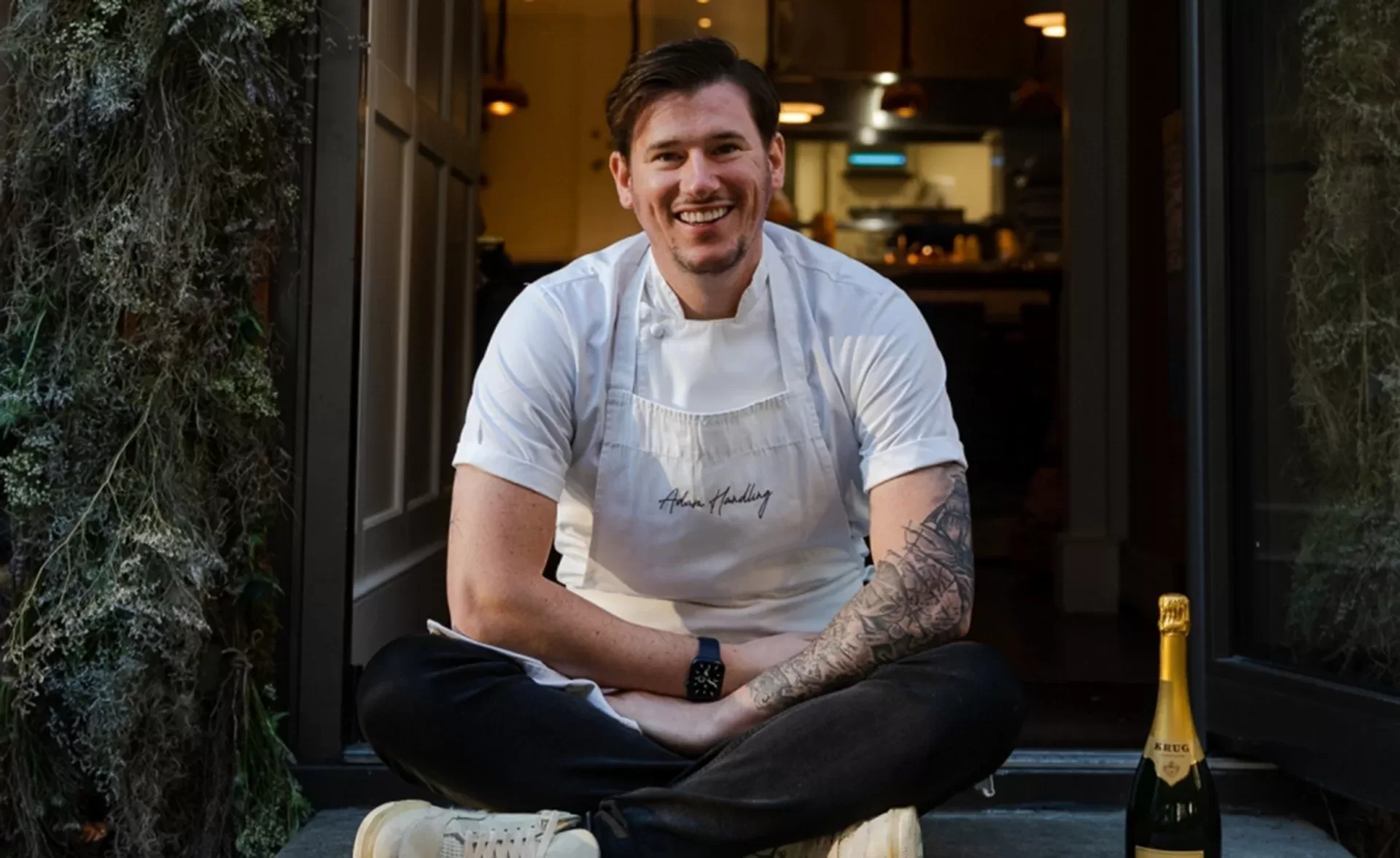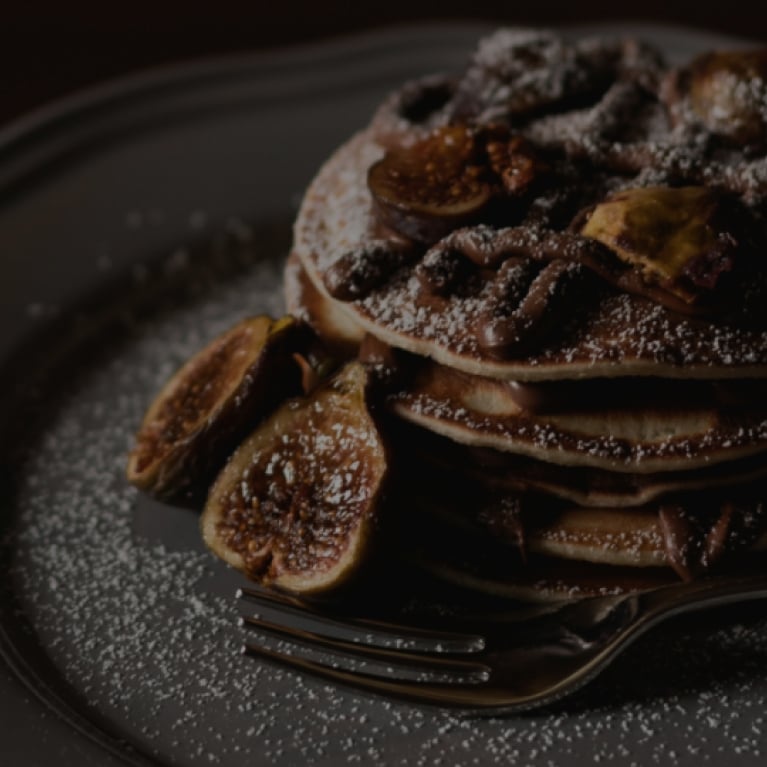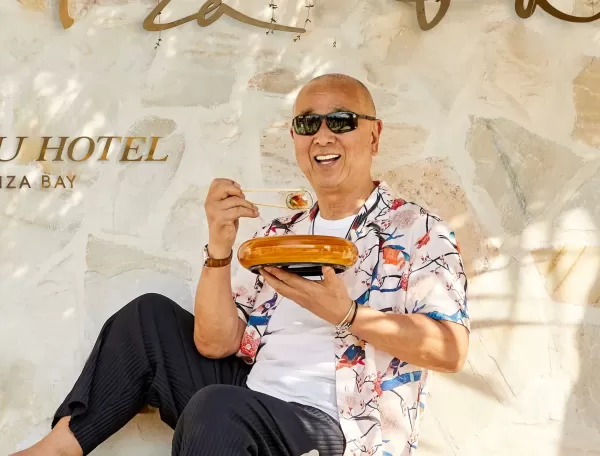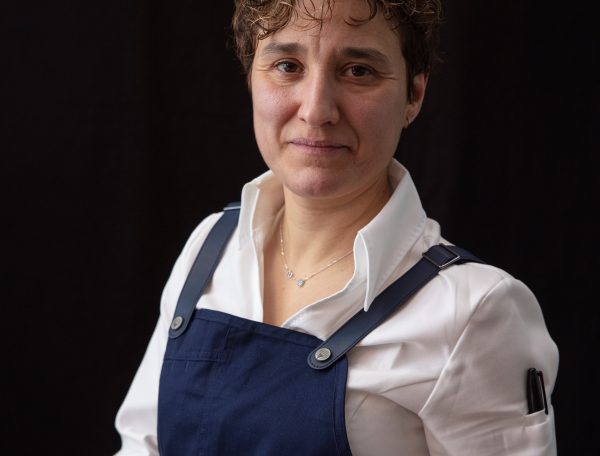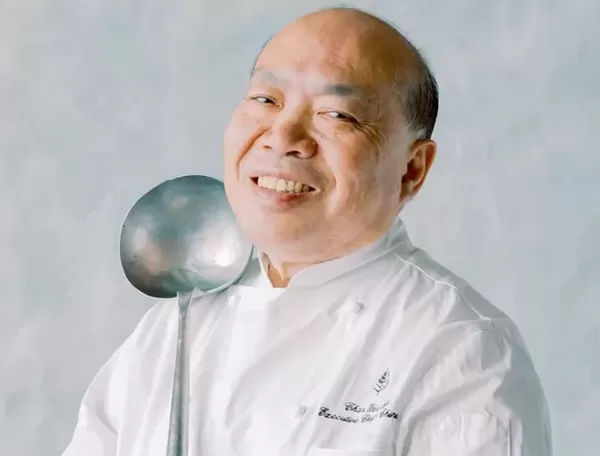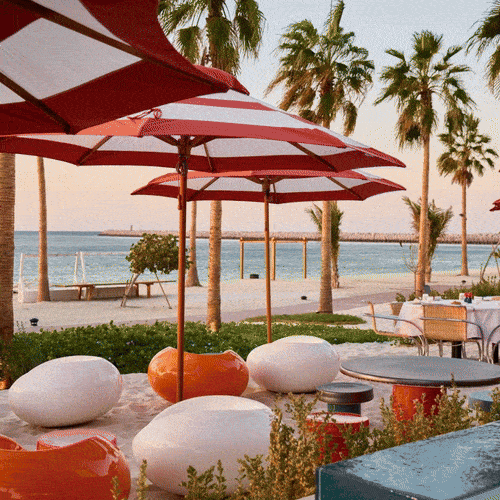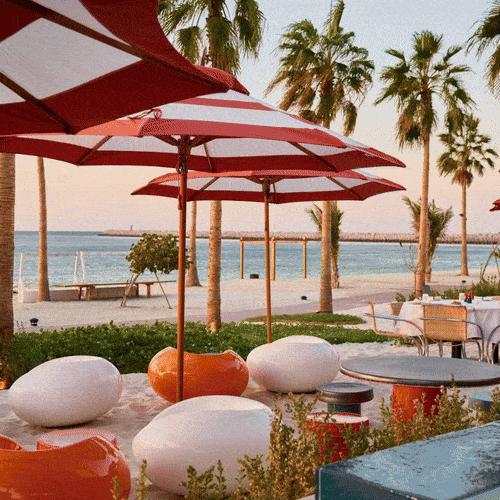Michelin-starred chef Adam Handling MBE isn’t one to sit still. In fact, he’s recently hopped just around the corner from his flagship restaurant, Frog by Adam Handling in Covent Garden, to open his very own chocolate shop pad. We sat down with Adam to talk about how he’s leaping into the world of sustainability, zero-waste cooking, and transforming leftover croissants and cod’s roe into innovative, impressive creations.
Why is sustainable cooking so important to you?
I think sustainability has actually made me a better chef. Setting myself the challenge of using as much of an ingredient as possible has pushed me to use a wider range of techniques and has, without a doubt, extended my flavour palate. It’s become fundamental to my cooking and ties all my restaurants together. Aside from that, it’s critical to the future of the planet – the food we eat and the waste it produces makes a significant impact.
What daily steps do you take to eliminate waste in the kitchen?
We try to use as much of our ingredients as possible, minimising how much we waste. This means being more considerate when we design our menus and dishes. Our dish ‘All the pumpkin’ at The Frog Hoxton used pretty much the entire vegetable – from the flesh and skins down to the seeds, which we used to make a miso.
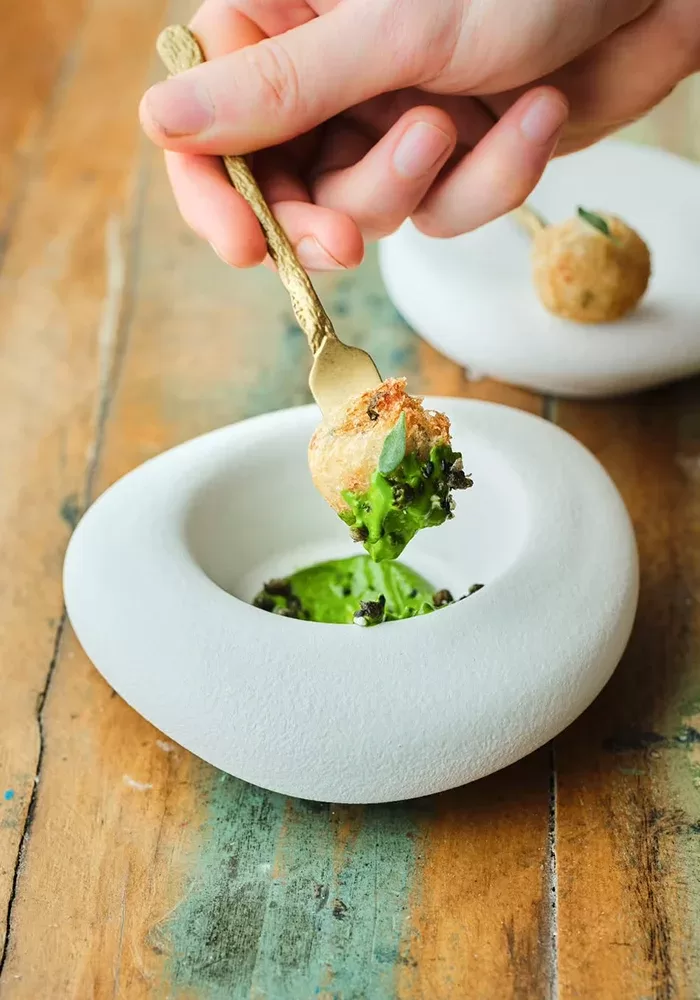
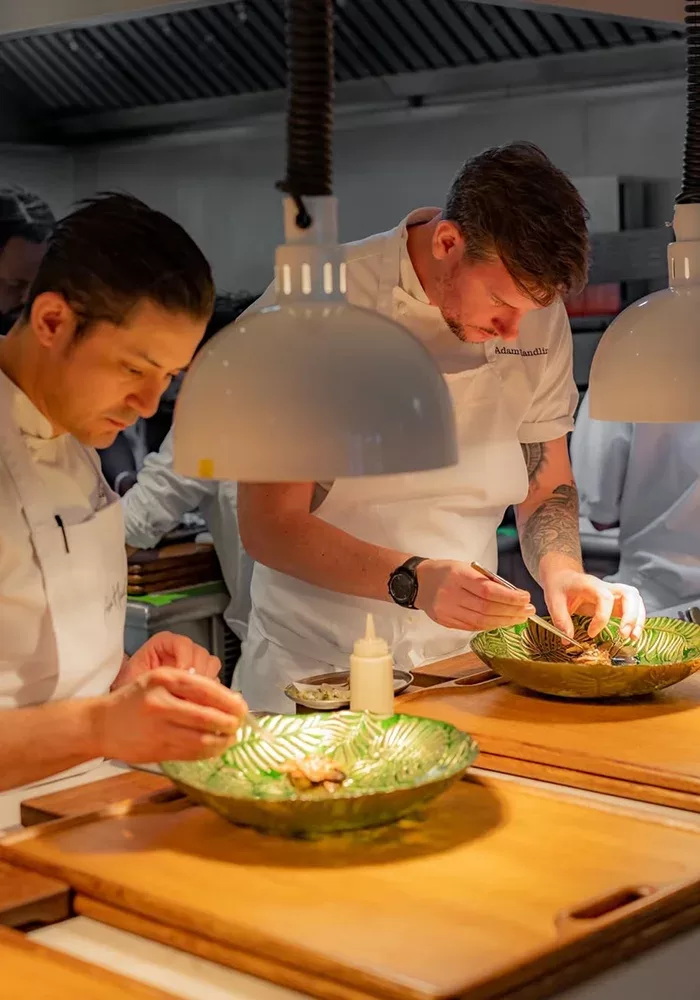
What is the most exciting dish you’ve made utilising by-products and/or offcuts?
My absolute favourite to date is a toss-up between the reformed doughnut pudding, or the Cod’s roe croissants from my restaurant, Ugly Butterfly. The croissants were the ones that weren’t sold at breakfast just down the road at Adam Handling Chelsea. The buttery flakiness of the pastry paired really well with the smooth, tangy cod’s roe – a less widely used and often wasted ingredient.
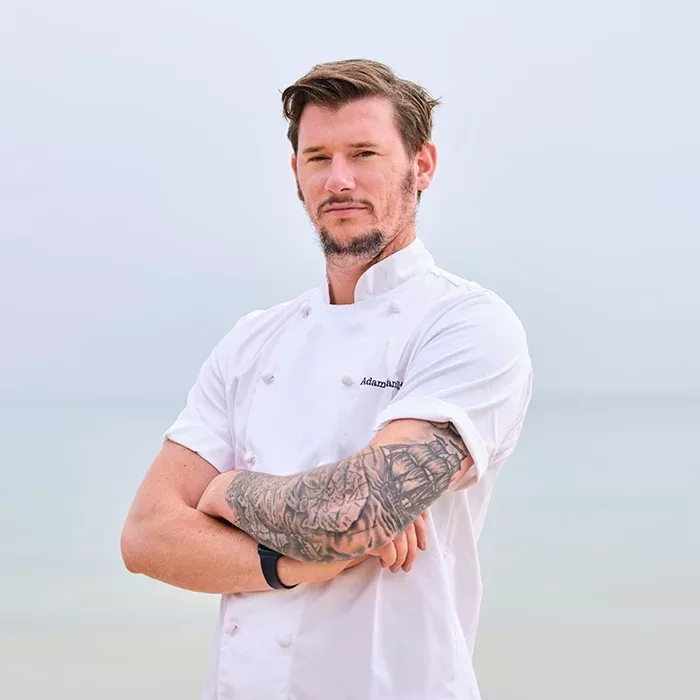
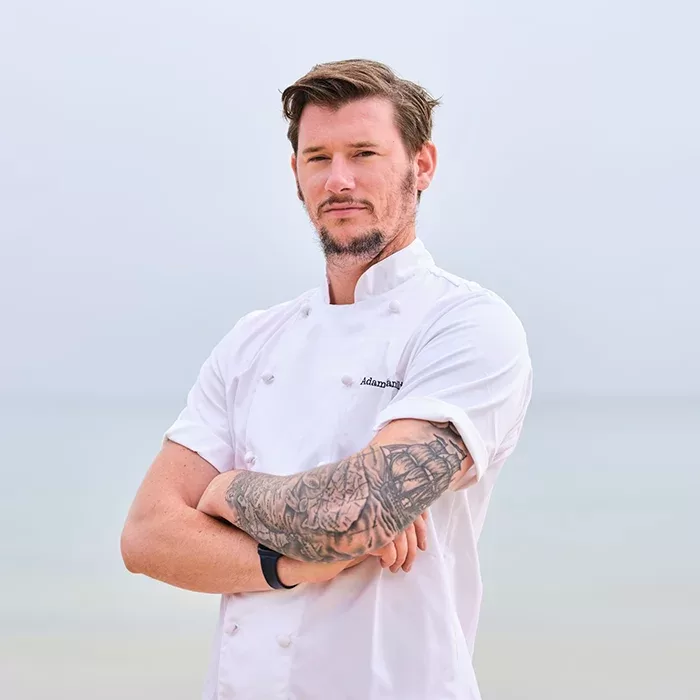
'Sustainability has actually made me a better chef … it’s become fundamental to my cooking and ties all my restaurants together.'
– Adam Handling
How do you see sustainable cooking evolving over the next couple of years? How are you going to participate?
I think (and hope) sustainable cooking is only going to gain more momentum over the next few years. Generally speaking, it’s the younger generation who care most about the environment – they’re the ones creating the demand for more eco-conscious restaurants and experiences. I intend to continue my restaurant group’s goal to be entirely zero-waste and sustainable, whilst educating the public on how to do the same.
Does your commitment to eco-mindedness extend beyond food and into your wine lists and décor of your current (and upcoming) restaurants?
Luckily, I have an amazing team that shares the same values as me. They’re equally dedicated to reducing our environmental impact, so we’re putting measures in place to be as eco-conscious as we can. At Ugly Butterfly, we worked with The Wood Store and Junkey Munkey to fit out the furniture and lighting using upcycled materials like wood and glass bottles. We even stopped stocking glass-bottled beer at my bar, Eve, when we found out glass is harder to recycle than cans – it’s the smallest details which, when combined, make a huge difference.










